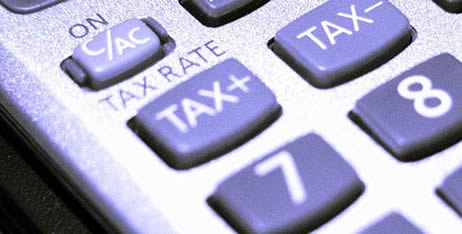There are few issues that illustrate the current political stalemate better than taxes. Pakistan has one of the lowest tax-to-GDP ratios in the world, and it’s expected to stay in single digits until at least 2014. The answer to this problem is apparent – “broaden the tax base by netting potential taxpayers and withdrawing exemptions”. So why doesn’t the government just do what is necessary to get the national finances in order?
The answer of course is politics. President Zardari has extended an olive branch to Nawaz Sharif in an effort to get opposition parties to back tax reforms, only to have PML-N spokesman Ahsan Iqbal reply that his party could not support the measure.
Mr Iqbal said the PML-N would not support the RGST bill because it considered it against the people. “Instead of extending a hand of friendship towards Mian Nawaz Sharif, the government should utilise its energies for the elimination of corruption,” he added.
Ayesha Tammy Haq expresses the frustration common among our educated middle class – that parliamentarians are putting their own political futures ahead of the national interest.
They agree that reform is required, that it is inevitable, but in the time-honoured tradition of Pakistani politics they seek to delay the inevitable. At the very least, until after the next election. This logic resonates with the political side of government, which knows that unpopular measures, no matter how critical, do not win you elections. And it is all about staying in office. No one agrees that the need for reform is dire enough to merit losing an election.
Tammy Haq is correct in her observation, but I fear that she misses an important part of the equation. What good is passing a reform that is politically unpopular? The next elections will simply replace the ‘courageous’ politicians willing to make unpopular decisions with those who promise to undo them. Then the country is left where it was before.
That doesn’t mean we should give up on seeing these reforms take place. Rather, I think the answer is in another part of Tammy Haq’s piece.
We know what is needed to develop the rural economy, we know that we need to generate more power, we need to cut our fuel bills, we need to manufacture, produce and export more and import less. We need to build competitive capacity and to do that we need access to capital. We know what it is we need; the number crunchers tell us it is doable. Our issues aren’t commercial, they’re political; to survive we need to start making tough political choices.
Notice that she uses the term ‘We know’. Here is something to think about – who is ‘We’? Actually ‘We’ in this case tends to be the educated middle-class who understand the economics behind the proposed reforms and how changes to the tax laws will benefit rather than hurt the economy. But this is but a small part of society. When media describes tax reforms as threatening the masses through increasing price of essentials and balancing the budget on the backs of the awam, it creates a political environment where reforms will not happen precisely because the people do not want them to happen.
The first step to reforms is explaining to the masses why they’re important to make. Until the masses understand the need for specific reforms, we will be building on a foundation of sand destined to shift under the weight of the next political storm. All politicians are going to take the path of electoral self-preservation. If we want politicians to make tough decisions, we need to help them by transforming those decisions from ‘tough’ to ‘easy’. When the people demand reform, reforms will take place.
![]()







Adeel, if the moderator shows some kindness to my comment
on Tammy’s article you can respond on that.